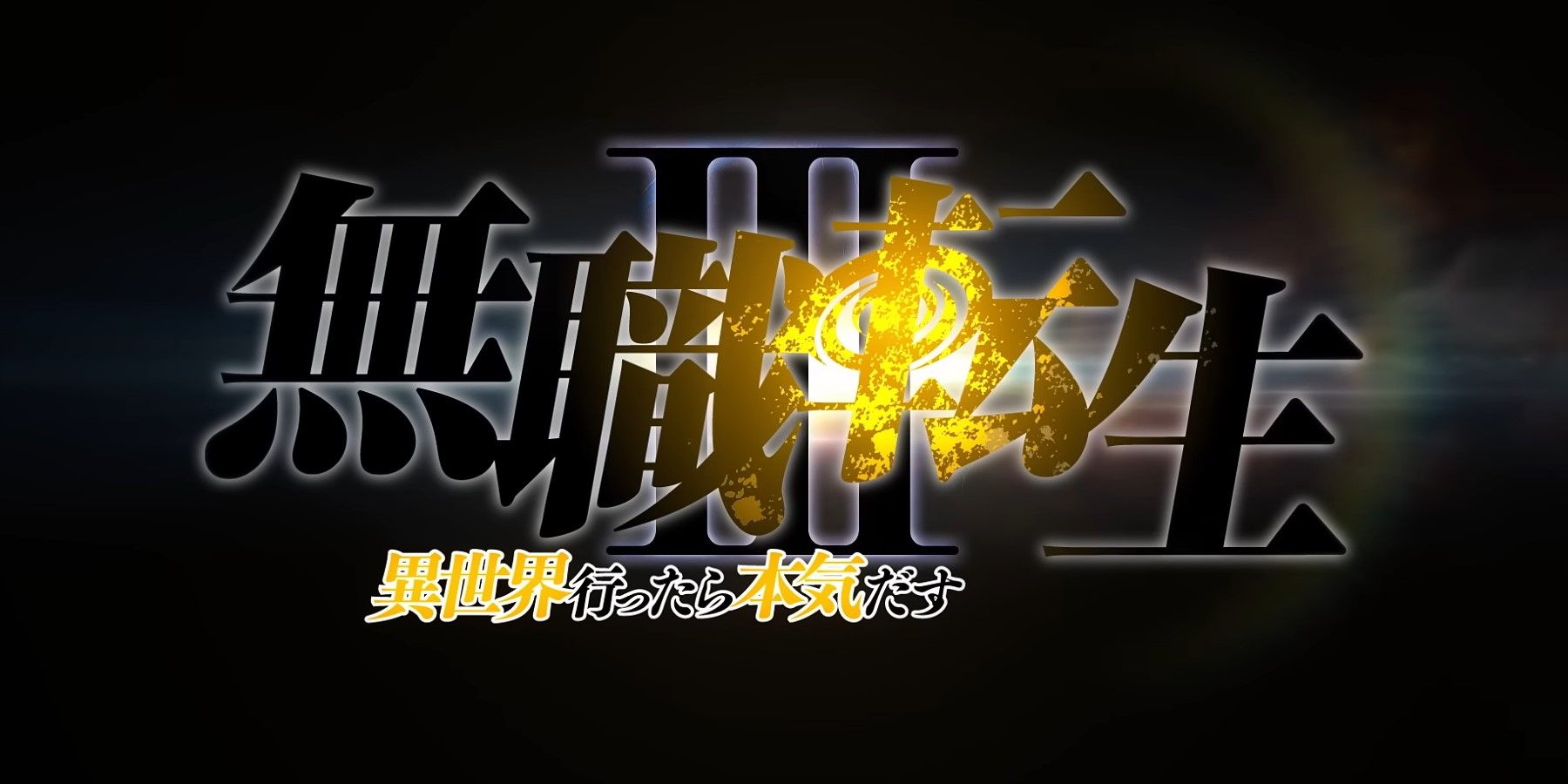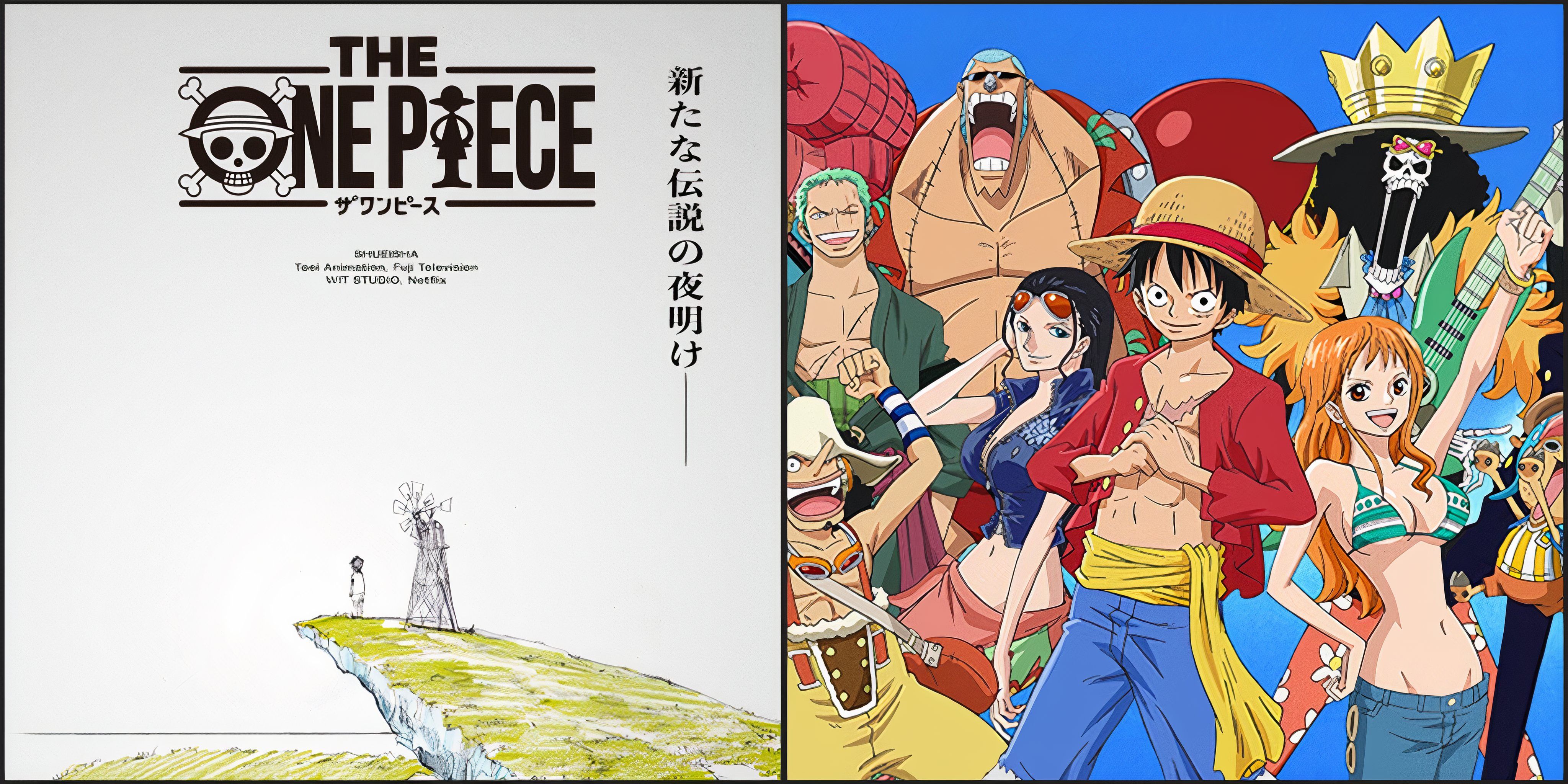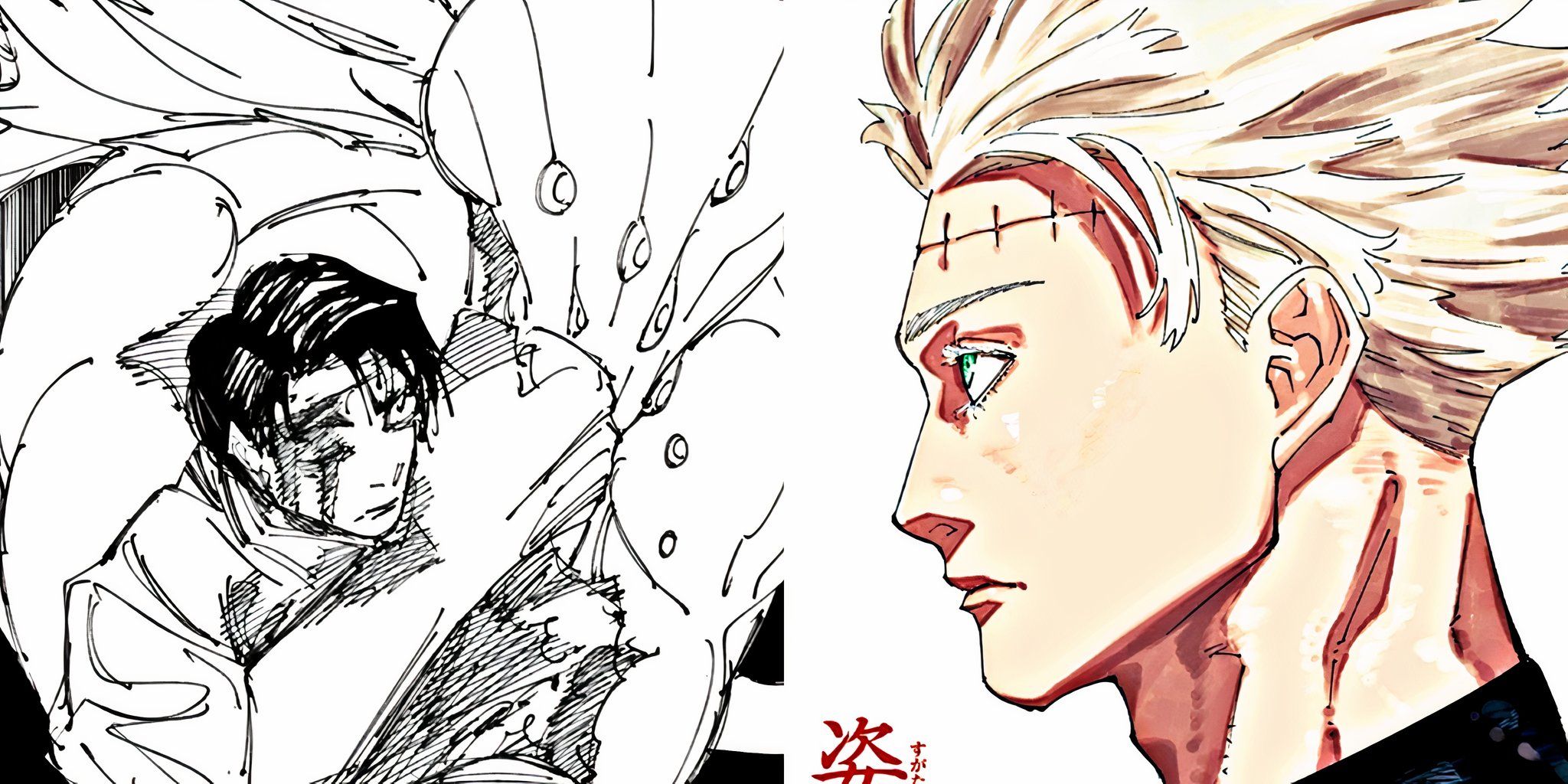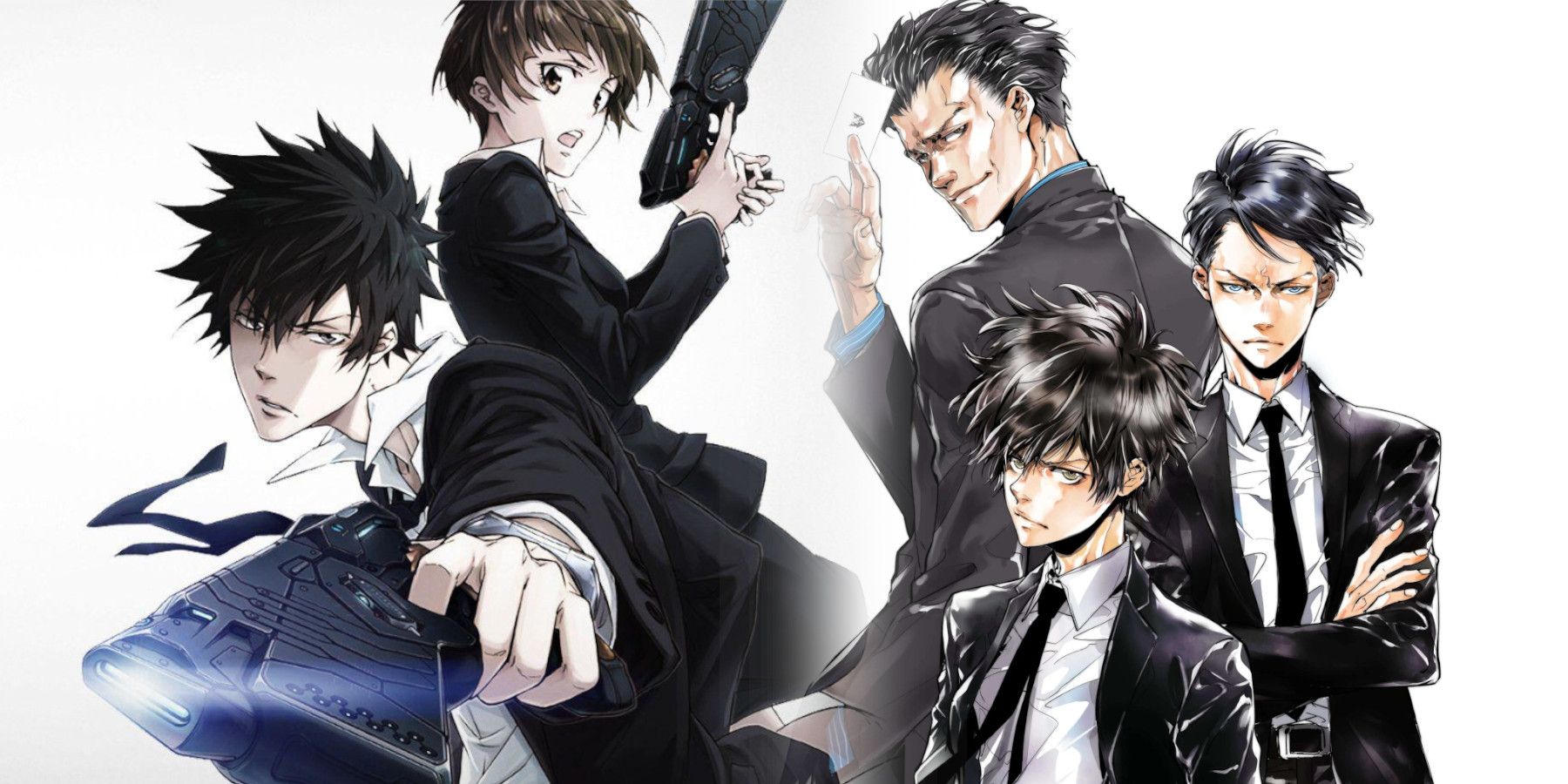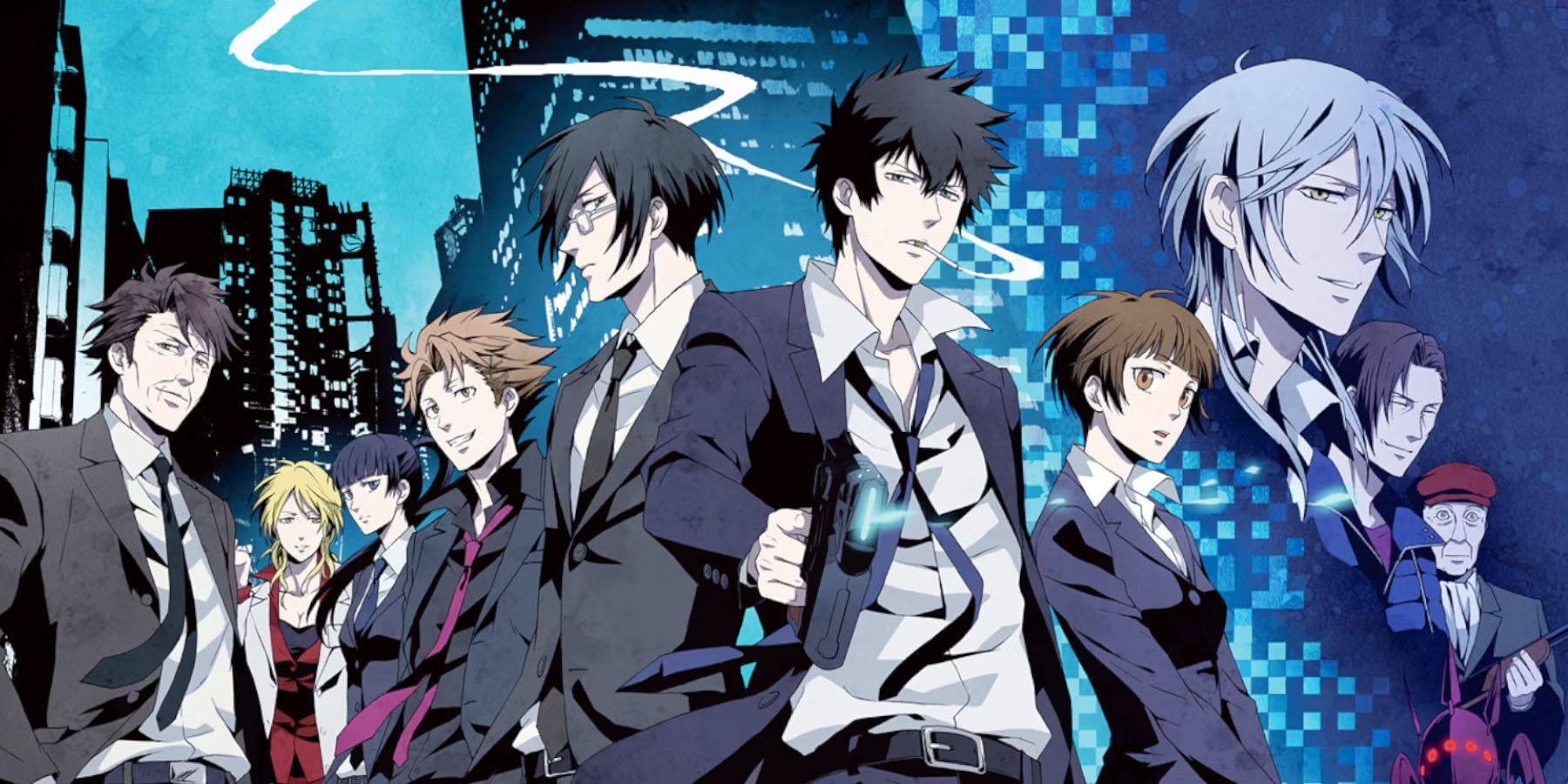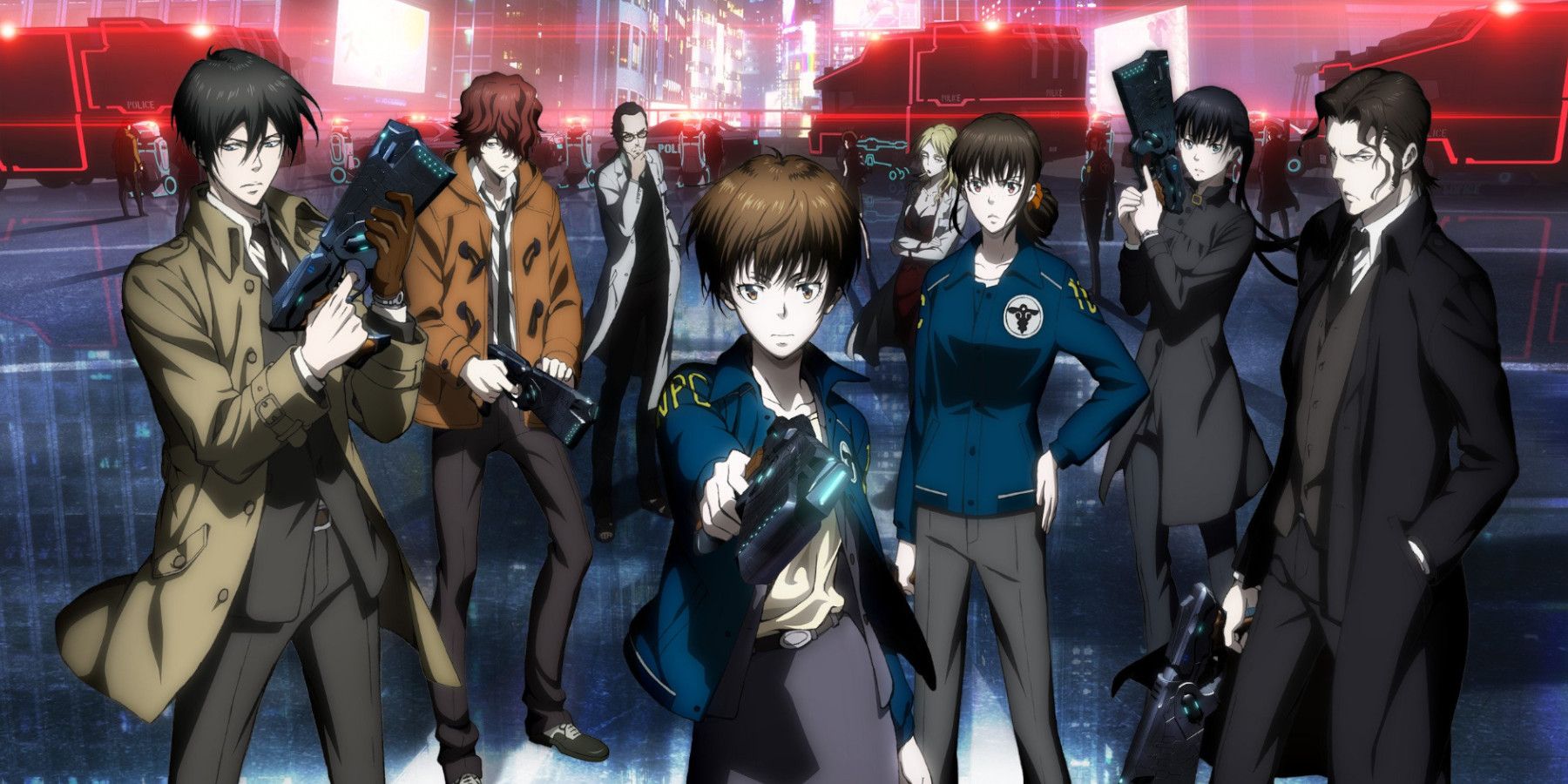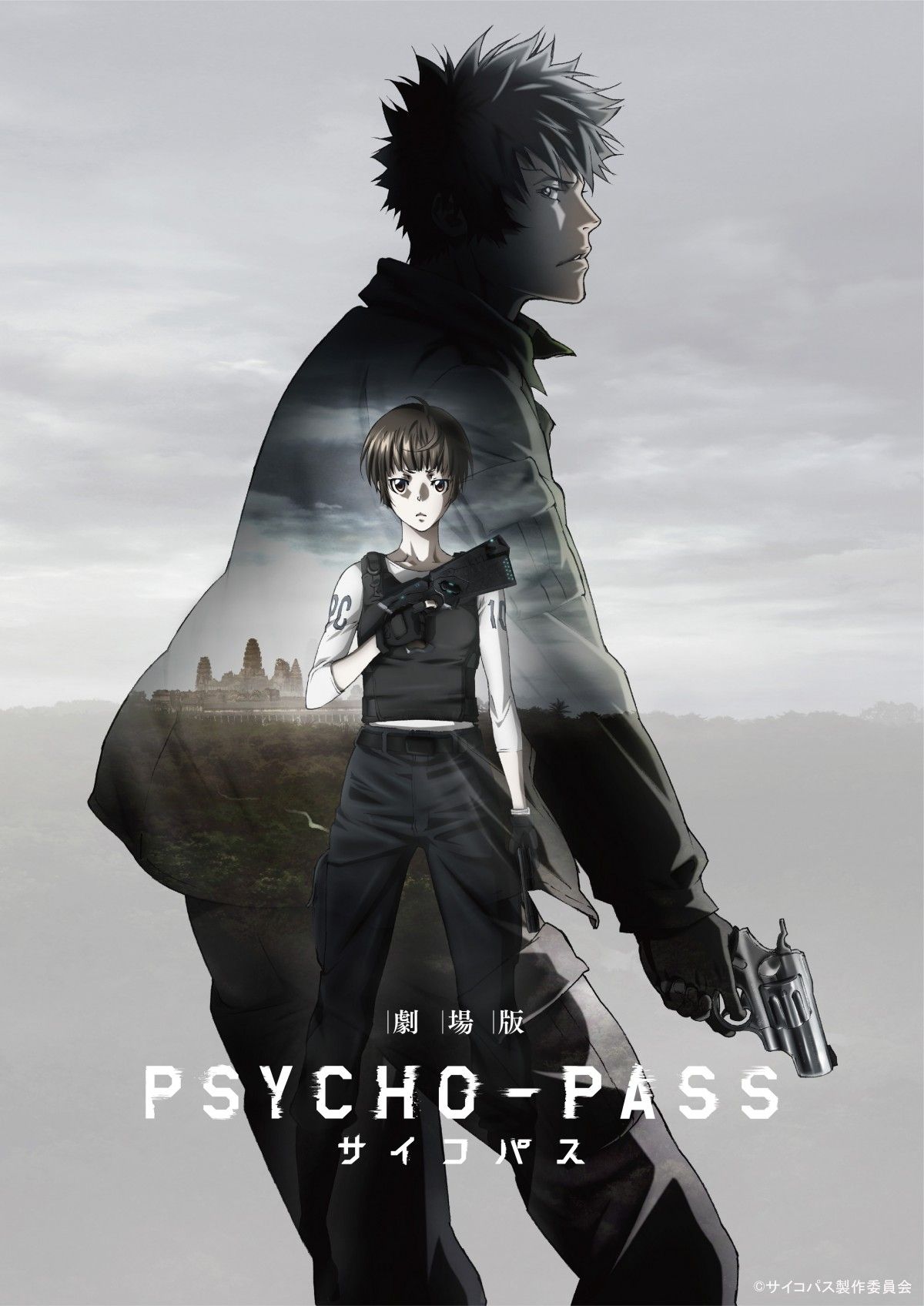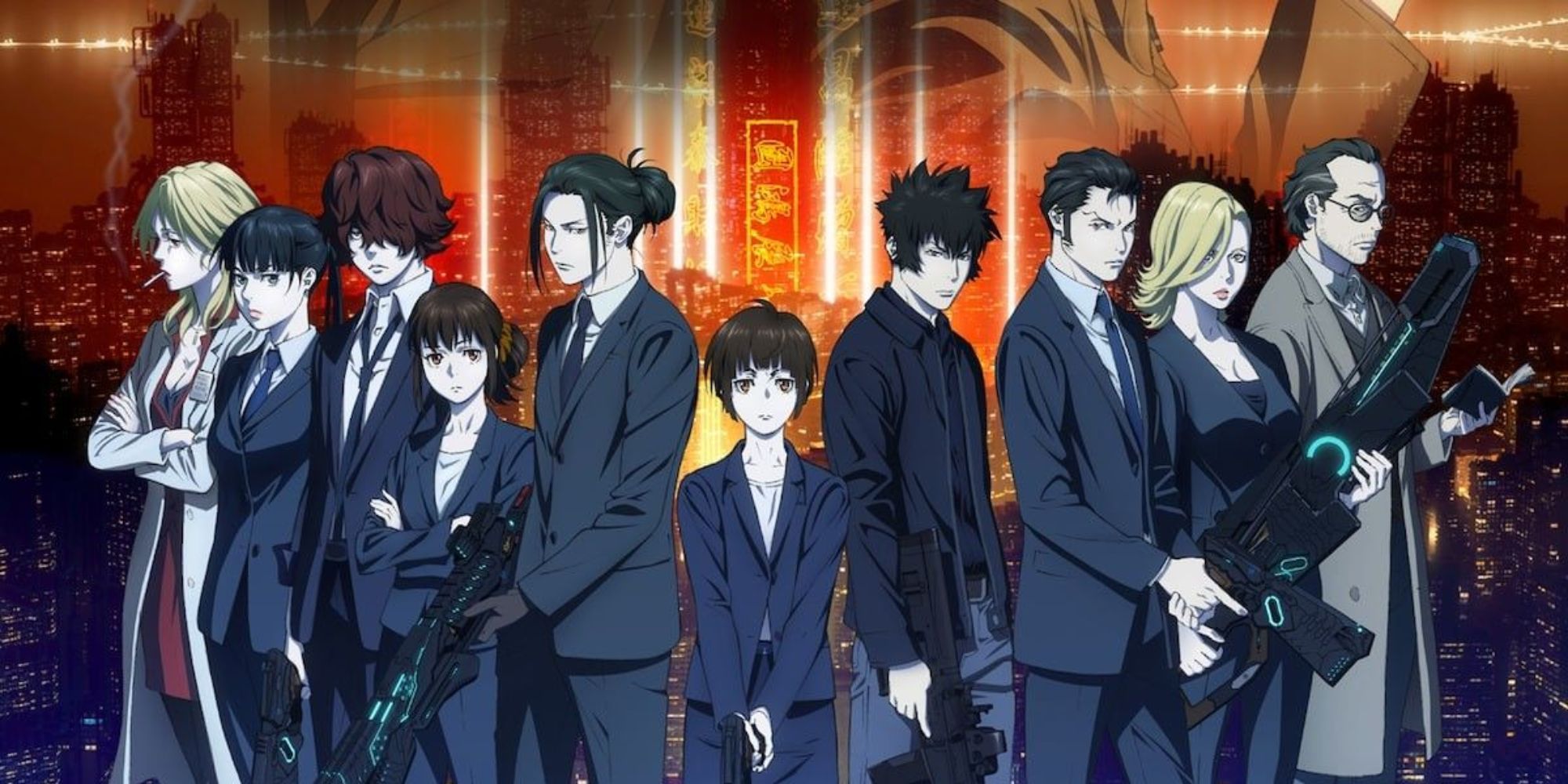Spoilers for Season 1 of Psycho-Pass ahead.
It wouldn’t be much of an overstatement to say that Psycho-Pass is one of the best anime of the 2010s and certainly one of the most promising original IPs to come from Production I.G. in a long time. But after 10 years, the series has undergone a lot of changes, and as fans await the new film this coming May, it’s time to ask: what kind of story is Psycho-Pass trying to be?
The series premiered on October 12, 2012, telling the story of a future where the probability of a person committing a crime could be measured, hence a person’s “Psycho-Pass.” It follows Inspector Akane Tsunemori, a newcomer to the Public Safety Bureau, as she comes face to face with this future’s concepts of crime, punishment, and free will.
A Masterful Start
The first season is widely regarded as the best of the entire series; a methodical construction of an advanced utopia that is completely deconstructed within its latter half. It was praised for Urobuchi’s violent but incredibly clever script, centered around questions of the spirit of the law, and an iconic rivalry between its lead detective and a cunning serial killer.
From the premiere, the series begged compelling questions about such a rich and tightly constructed future and answered those questions thoroughly. It took concepts like predictive crime-fighting seen in works like Minority Report and expanded it beyond police work to include all aspects of society. Sybil didn’t just assess the probability of being a criminal, but also where one would best aid society.
Psycho-Pass makes a very good case for some of its world’s amenities, which is precisely why it leans so hard into portraying its lows with such dramatic and arguably overdone horror. Urobuchi’s adept pen at the height of his craft writes something truly edgy, but that is saved from excess by the sheer force of presentation and thick atmosphere.
The story primarily focuses on a number of serial killers circumventing the system with the help of Shogo Makishima, a man who is seemingly immune to Sybil’s snares. He aims to dismantle this society, viewing it as an affront to nature that robs humans of autonomy. As he comes to blows with Kogami and encounters Akane, his philosophy on humanity challenges their perceptions of justice and what the people need.
Should Sybil be allowed to continue operating, given that it has plenty to offer the people, or are its flaws too great? Akane decides to work with the system in hopes of improving it until mankind is ready to choose whether it wants Sybil or not. It was an open-ended finale, but the question remains if it should have continued or simply left the audience with a question.
A Retread & A Retreat
Psycho-Pass 2could not be a more stark contrast from the first season in terms of its reception, much less its production, having been made by a completely different studio and creative team. There isn’t much to say about how it expands on the first season because admittedly, it doesn’t. If anything, the characters find themselves right back where they started.
No, the true continuation came in 2015 with Psycho-Pass: The Movie, where the creative team from Season 1 returned with a vengeance. And it would be the last time that Urobuchi would write for the series, only credited in future entries as the “original creator.” One might think that this would have been a conclusion of sorts, but it only begged more questions.
Psycho-Pass rarely had to address the world outside of Japan, as it was a fairly centralized story. However, a big part of Makishima’s plan was to force Japan to stop being closed off to the world, and so to expand on the story would mean expanding on the world. And thus, the movie took Akane to the Southeast Asia Union, or SEAUn, and it turns out the world outside of Japan is in dire straits.
There are lines suggesting that the world besides Japan is wrought with civil strife and war, making Japan one of the last remaining peaceful countries on Earth. The film follows an investigation into a rebellion in SEAUn against the government and its implementation of Sybil. Akane investigates corruption while teaming up with Kogami to uncover the truth.
While the movie was received much more favorably than the second season, it felt like it only scratched the surface of something bigger - a byproduct of its sudden shift toward an international stage. Additionally, the film capitalized on the cinematic event by injecting far more action, and some heavily stylized action at that, which was definitely cool but would have definitely been out of place if the story were still set in Japan.
Psycho-Pass was compelling because it was a cop show that had to restrain itself by virtue of its premise, and the vision of a future where the police didn’t carry conventional firearms. Through this, the story could create tension by pondering how the characters would respond to unprecedented instances of crime that they were unequipped to deal with. But looking beyond Japan’s borders, it was as if the floodgates lifted.
Just Another Sci-fi Action Series?
Psycho-Pass: The Movie was good - arguably very good. Akane had certainly grown as a character in exciting ways and made defiant strides against the Sybil System, challenging it and making powerful statements about the spirit of the law. It was all good, but it wasn’t a conclusion and more or less left the audiences where they were at the end of Season 1.
The entire series is about how humanity should be governed and if it is even capable of governing itself. The Sybil System represents what happens when humanity is governed by something inhuman that seems to supersede its capacity for logic and reason. But it’s in characters like Kogami and Akane that humanity’s strength is represented.
The thesis of the series isn’t one that necessarily needs to be seen to its bitter end but rather benefits from an open-ended conclusion that lets the audience ponder what is better in the end. But for that to work, the series has to actually end, and Psycho-Pass doesn’t seem to know when to do that. Since the movie, there have been three short films, a third season, another film, and now the upcoming anniversary film, Providence.
Ever since 2015, the series has been far more of an action series chasing the thrills of the first film, even when the story is set in Japan in the thick of Sybil’s control and influence. Despite Shogo’s plan in Season 1 to force Japan to open its borders, Sybil does it themselves by the start of Season 3. There is even a suggestion the system is changing to accommodate change, but it often just feels like an excuse for action.
Psycho-Pass can still be compelling. Yugo Kanno’s music is incredible and often triumphant. Some of the stories are genuinely interesting. The franchise honors old characters and makes likable new ones while offering some great action, but more and more there’s a question of “what’s it all for?” For all the ways the series has grown, its core messages haven’t seemed to move past what it was all those years ago.
